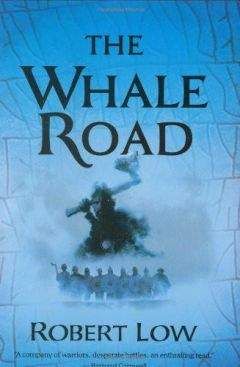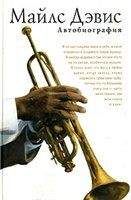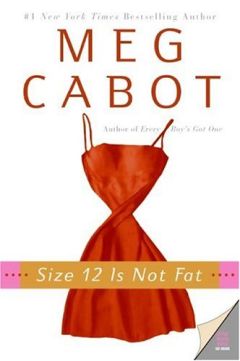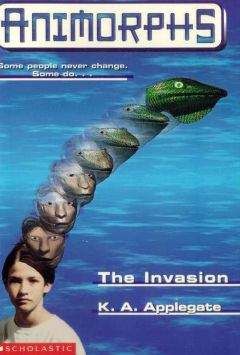Greg Iles - The Devils Punchbowl
I'm glad yall decided to go ahead with it, Annie says, grabbing my arm as we hurry to join the people streaming among the balloons. This will help the refugee kids forget about the hurricane.
She tugs me toward the nearest balloon, and I use her momentary inattention to check my cell phone for further text messages. I don't know if I'm hoping Tim will cancel the meeting or move it forward. All I know for sure is that I want the truth about Golden Parachute. But theres no message.
I spend the first forty-five minutes with Annie, looking at everything she instructs me to and buttonholing pilots so she can ask them all kinds of questions about the flight parameters of hot-air bal
loons. I get buttonholed myself a few times, by citizens with questions or complaints about their pet interest, but Annie has become adept at extricating me from such conversations. TV crews roam the grounds of Rosalie with their cameras: one from Baton Rouge, ninety miles to the south; another from Jackson, a hundred miles to the north. I promise a producer from the Baton Rouge station that I'll give her five minutes at the gate of Rosalie, where they're interviewing pilots and Katrina refugees. I plan to take Annie with me, but two minutes after I make the promise, we walk right into Libby Jensen, and something goes tight in my chest.
Libby! Libby! Annie cries, running forward and giving her a hug. Arent the balloons
awesome
?
Yes, they are, Libby agrees, smiling cautiously at me above Annies head.
Libby is a Natchez native who went to law school in Texas, married a partner at her Dallas firm, had a child by him, then divorced him after discovering that hed kept a series of mistresses during the first decade of their marriage. She liked practicing law about as much as she liked being cheated on, so she brought her son back home and used her settlement to open a bookstore. Her charisma and sharp business sense have made the shop a success, and several author friends of mine stop to sign books there when making the literary pilgrimage from Oxford to New Orleans. After Caitlin left town, Libby and I found that our friendship quickly evolved into something that eased the loneliness we both felt, and that mutual comfort carried us through most of a year. But her son, Soren, has some serious anger issuesnot to mention a drug problemand Libby and I disagreed about how best to handle that. In the end, that disagreement drove us apart.
Tonight is the first time weve found ourselves together since ending our relationship, and I've worried it would be awkward. But Libbys soft brown eyes shine as she hugs Annie, and in them I see an acknowledgment that the sadness she feels is in part her own choice.
Wheres Soren? Annie asks, reminding me that Tim said hed seen Libbys son down on the
Magnolia Queen,
looking high as a kite.
Libby rolls her eyes to disguise the anxiety thats her constant companion. Oh, running around with his friends, complaining
about the bands they booked this year. Where are you guys headed?
Daddy has an
interview,
Annie says, obviously not enthused by the idea of standing by while I play talking head.
Well, you can just come with me while he acts like a big shot for the cameras. Libby gives me a wink. I just saw some of your friends diving into the Space Walk.
Can I, Dad?
I question Libby with a raised eyebrow, and she nods that she meant the invitation sincerely.
Okay. I'll catch up in a half hour or so. Were not staying long, though. I have some work to do tonight, and I want to be rested for that balloon flight tomorrow.
Id like to see that, Libby says, chuckling like a wiseass.
I'm making him take a barf bag, Annie tells her. Seriously.
I wave them off and head back toward Rosalie, wondering where Tim Jessup is at this moment. Dealing blackjack on the boat docked below the cemetery? Or hiding out in some hotel room with stolen evidence, chain-smoking cigarettes while he waits for midnight to come?
There are no hotel rooms available,
I answer myself. Implicit in my worry about Tim is a fear of violence, and it strikes me that violence has always been a part of the ground beneath my feet. Fort Rosalie, the original French garrison in Natchez, was built in 1716. In 1729 the enraged Natchez Indians massacred every French soldier in the fort to punish them for ill treatmentfor which French reinforcements slaughtered every native man, woman, and child they could find the following year. Rosalie went on to become General Grants headquarters during one night of the Civil War, but by then it had presided over untold numbers of robberies, rapes, and murders in the Under-the-Hill district that lay in its shadow.
Is it possible,
I wonder,
that in some dark clearing across the river men are gathering to watch starving animals tear each other to pieces while half-naked girls serve them drinks?
As I round the east corner of Rosalies fence, a tungsten video light splits the dark, and several brown heads begin bobbing in its glare. If the gas jets of the balloons look like lanterns, the video light is a white-hot star illuminating a blond woman with a handheld mike standing before Rosalies gate. Shes interviewing some children who
apparently fled here from the Lower Ninth Ward in New Orleans in the wake of Katrina. Two TV trucks are parked nearby, and more than a dozen journalists call questions to the kids from the shadows behind the light.
As I near the spotlights halo, the producer I spoke to earlier waves me over and tells me what she wants: the basic Chamber of Commerce routine. When the kids finish, I take their place before the gate and squint against the glare while my pupils adapt.
On TV I tend to come across more like a district attorney than a mayor, and this has been a double-edged sword. Despite my diminished enthusiasm for the job, after two years in office I can give the citys PR line on autopilot. This years Balloon Festival, however, has more meaning than usual. With the citys hotels and shelters filled to bursting with suffering families, many locals believed we should cancel the races out of respect for the hurricane refugees, and also to keep from straining the citys overtaxed resources. But the Balloon Festival is a twenty-year tradition, and I, along with several community leaders, championed the idea that the work required to bring off the races under extraordinary circumstances would prove a unifying force for the community. As I explain this to the brightly blank eyes of the TV reporter, she acts as though my words amaze her, but I know shes thinking about her next question, or her eye makeup, or where she can get a sugared funnel cake like the one a refugee kid is eating. I try to wrap up my pitch with some enthusiasm for the citizens wholl see the report from home.
Critics argued that with the hotels filled, the balloon pilots would have nowhere to stay, I say, but dozens of families have generously opened their homes so that the festival could go forward. We've had more volunteers for the support crews than weve ever had before. After feeling the outpouring of energy up on the bluff tonight, I believe events are going to bear out our optimism. The best thing you can do in the aftermath of tragedy is to focus on the present, because that way lies the future. Thank you.
I move to step out of the light, but suddenly a cool, calm female voice with no accent reaches out of the dark and stops me.
Mr. Mayor, some refugees have claimed that they're not receiving the relief checks that the federal government promised them. Could you comment on this for our readers?
Caitlin.
She
is
here.
I shield my eyes from the glare. What paper are you with? I ask innocently.
The
Natchez Examiner,
Caitlin answers with the faintest trace of irony. Caitlin Masters.
Well, Ms. Masters, welcome back to Natchez. As for the relief checks, they're a federal matter and consequently not within my purview. Could someone kill that light, please?
What about the contention of two of your selectmen? Caitlin continues, a fine barb of challenge in her voice. They say theres been a great deal of fraudulent application for relief by refugees, with some people going through the check line three and four times with one Social Security number.
To my surprise, the spotlight goes dark, but I cant pick Caitlins face from the red afterimage floating before my eyes. As I said, those relief checks are being issued by the federal government; therefore, fraud in obtaining them falls under federal jurisdiction. I suggest you speak to the FBI or the Department of Homeland Security.
I intend to.
Good luck. Thank you, ladies and gentlemen. Enjoy the festival.
The knot of reporters breaks up quickly, leaving Caitlin and me with two techs packing equipment. My eyes having recovered, I see immediately that she looks as good as she ever did, unique among the women I meet in my daily life. Caitlins bone-white skin, her waterfall of jet black hair, and her startling green eyes combine to radiate an almost disconcerting sense of self-possession. This woman is smart, you sense on meeting her, probably too smart for her own good, or anybody elses.
You want to walk? she asks.
Sure.
She gives me an easy smile and starts away from Rosalie, walking across the head of Silver Street, the hill road that leads down to one of our casino boats, then toward the bluff proper. Caitlin leads me along the fence, on the asphalt path laid by the Corps of Engineers when they reinforced the bluff. Eighteen inches beyond the fence, the land drops like a cliff to the banks of the river below.
You never were much of a walker, I comment, unless you were headed somewhere specific.
She laughs softly. Maybe I've changed.
I murmur in surprise.
So hows it going? she asks, her words banal but her tone something else altogether.
When you practically live with someone for six years, you come to know their rhythms the way you know your own. Their way of talking, the way they breathe, sleep, and walk. Changes in those things communicate messages if you pay attention, but as I walk beside my old loverold in the sense of long experience togetherI find that our separation has dulled my perception of her secret language. That is if she means anything beyond her literal words. Maybe in this case a walk is just a walk.
Its been hard, I say quietly. Its tough to admit you were wrong about something, and even harder to admit someone else was right. Harder than I thought it would be.
People don't like change, she says. I see it every day, wherever I go.
You said you've changed.
Her green eyes flicker. I said maybe.
The small park weve entered was the main venue for festivals when I was a child, the white gazebo atop the bluff a gathering place for painters and musicians and even ham-radio operators, who came because the ground was the highest for miles around. At the gazebo steps, I let her ascend first, watching the clean line of her shoulders, the graceful curve of her back. God, I've missed her. She walks to the rail and looks out into the night sky over the river.
It smells the same, she says.
Good or bad?
Both.
Across the river, lines of headlights move east and west on the main highway crossing the hard-shell Baptist country of Louisiana. Twelve miles into that darkness, Jerry Lee Lewis and Jimmy Swaggart were raised under the flaming shadows of God and Satan, while around them sharecroppers toiled in the cotton and sang their pain to the uncaring fields.
People think they're in the South when they're in the Carolinas, she says. And they are, I guess. But this place is
still
the South, you know? Its unassimilated.
I murmur assent, but I still don't engage in conversation, preferring to study her from an oblique angle. This is the closest I have been to Caitlin in months. In a crowd of Mississippi women she stands out like a European tourist. In our moist, subtropical climate, the milk-fed, round-cheeked faces of the belles usually last until thirty-five, like a prolonged adolescence. This beauty seems a gift at first, but when it goes, the rearguard action begins, a protracted battle against age and gravity that leaves many with the look of wilted matrons masquerading as prom queens. Plastic surgery only makes the masks more startling in the end. Caitlins face is all planes and angles, a face of architectural precision, almost masculine but not quite, thanks to feline eyes that shine like emeralds in the dark. Her every movement seems purposeful, and if she has nowhere to go, she stands like a soldier at rest. She never drifts. And remembering this, I realize that this walk is not just a walk.
What brought you back here? I ask softly.
She hugs herself against the wind shooting up the face of the bluff. Katrina.
This answer is certainly sufficient, but it seems too easy. Youre covering the aftermath?
I'm taking it in. Trying to process it. I've heard a lot of disturbing things about what happened down there. The Danziger Bridge shooting, wide-open rules of engagement. The administrations response on the humanitarian side, or lack of one. Talk about too little, too late.
Theres nothing original in this view. And I'm not much interested in a privileged publisher taking a luxury tour through the dark side of our national character. This reminds me of Caitlin as I first met her, a Northern dilettante who preached liberalism but who had no experience of the world outside a college classroom or a newspaper owned by one of her fathers friends.
Disturbing things happen everywhere, I say, all the time. In Natchez, in Charlotte, wherever. You can find a window into hell a mile from wherever you are, if you really want to.
She inclines her head, almost as though in prayer.
I didn't mean to sound so cynical, but I have little patience with selective outrage. You could just as easily be doing a story on how the white Baptist churches are sheltering black refugees, but that
won't sell as many papers as a white-cops-shoot-black-civilians story, will it?
You always kept me honest, didn't you?
And you, me.
She turns from the rail, and her green eyes throw back reflections of the streetlamps behind me on Broadway. A thumping bass beat booms from the tavern across the street, then a blast of calliope music blares dissonant counterpoint from below the bluff.
Wow, Caitlin exclaims. The boats must really be crazy tonight.
With a start, I realize that for a few peaceful minutes I haven't thought of Tim Jessup. I really should get back to Annie, I say, suddenly anxious about the depth of my need to be near Caitlin. I've got a really long day tomorrow.




